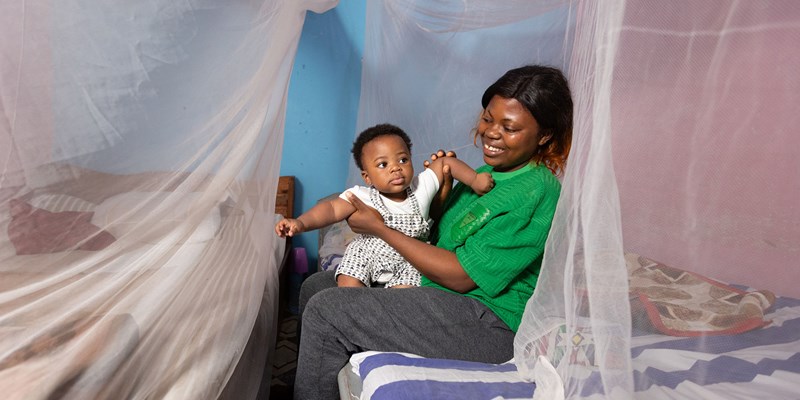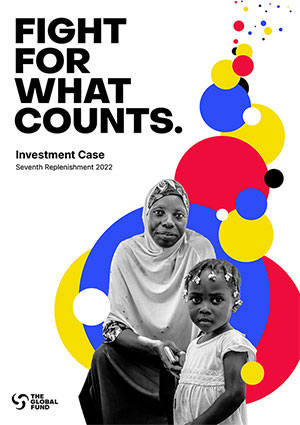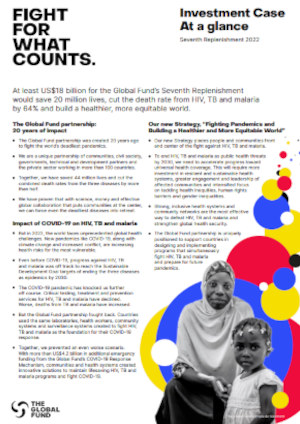Zambia and Global Fund Launch New Grants to Boost Fight Against AIDS, TB and Malaria and Strengthen Health Systems
22 March 2024
LUSAKA – The Global Fund to Fight AIDS, Tuberculosis and Malaria (the Global Fund) and the Ministry of Health of Zambia, together with the Principal Recipient, Churches Health Association of Zambia (CHAZ), have signed four new grants worth US$362 million. The new grants will continue to support the fight against AIDS, tuberculosis (TB) and malaria while also strengthening public health systems over the 2024-2026 period.
The new grants were signed during a ceremony hosted by the government of the Republic of Zambia and Zambia’s Country Coordinating Mechanism.
“The Global Fund’s unwavering commitment to our nation’s health is a beacon of hope, propelling us towards bold targets and transformative change,” said Sylvia T Masebo, Minister of Health of Zambia. “With the Fund’s steadfast support, we are empowered to not only combat HIV, TB, and malaria but to overcome barriers, defy odds, and rewrite the narrative of health in Zambia. Together, we are not just dreaming of a healthier future – we are making it a reality, saving lives, preventing infections and ending stigma. With the Global Fund as our ally, we march forward with solid determination, knowing that our shared vision of a healthier and more resilient Zambia is within our grasp.”
“We have partnered with Zambia for more than 20 years and we are very pleased to continue supporting the people of Zambia for a healthier and more equitable society,” said Linden Morrison, head of the High Impact Africa Department at the Global Fund. “The new funds will support programs to tackle HIV, TB and malaria, and strengthen Zambia’s systems for health, including laboratories, health product management systems and medical oxygen systems.”
For HIV, the grants aim to strengthen health systems to achieve the 95-95-95 target by 2025 and ensure control over the epidemic by 2030. For TB, the grants will increase treatment coverage for drug-sensitive TB from 68% in 2020 to 86% by 2026 and the treatment success rate from 90% in 2020 to at least 95% in 2026. They also aim to increase the detection of drug-resistant TB.
The malaria funding intends to build on Zambia’s strong commitment, leadership and intensified investments to reverse the upsurge of malaria cases in the country and the broader region and address cross-border malaria transmission. Through increased vector control coverage in households, the grant is expected to reverse the malaria burden from 340 cases per 100,000 in 2021 to 201 cases per 100,000 in 2026 and deaths from 8 cases per 100,000 in 2021 to 4.7 cases per 100,000 in 2026.
The funds across the four grants also aim at strengthening health systems to support the country’s universal health coverage agenda. This includes building strong laboratory systems and infrastructure, disease surveillance, a health product management system, and operationalization of a policy around community health systems, including training and renumerating community health workers.
The four new grants come in addition to funding from the Global Fund’s COVID-19 Response Mechanism (C19RM) that was introduced to quickly respond to the pandemic in 2020. As the pandemic has evolved, these funds have shifted towards broader pandemic preparedness. This includes disease surveillance system strengthening, laboratories and diagnostics, human resources for health and medical oxygen along with therapeutics. Through the C19RM investment, the Global Fund is also supporting the strengthening of surveillance and response for the ongoing cholera outbreak in the country.
Over the last two decades, Zambia has made significant progress towards halting and reversing its HIV, TB and malaria epidemics. HIV incidence has fallen by 58% between 2000 and 2022 and TB incidence by 56% over the same period. AIDS-related deaths have declined by almost 70%. The country has also made significant progress in cutting HIV-related stigma and discrimination by half, achieving significant increases in TB case notifications and the drug-resistant TB treatment success rate, and scaling up TB/HIV collaborative activities. Hard-won gains have also been made against malaria, which is endemic in Zambia. Between 2002 and 2022, deaths from malaria fell by 27% and new cases by 6%. Almost every person with suspected malaria received a parasitological test in 2022.







